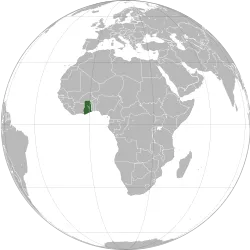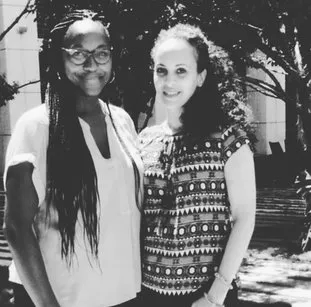African Journey

One of my priorities for 2018 is to diversify my investment portfolio. Having spent the last four years virtually 'all-in' on Cryptocurrencies, now is the perfect time for me to hedge my risk by exploring over ventures.
One of the avenues I'm exploring is investing in Africa and last weekend I went on a two-day 'bootcamp' with my sister @ak2020. The bootcamp was aimed at people from the diaspora wanting to start a business in Africa. Whilst I'm not looking to start a business per se; my interest is in investing, having an understanding of the business opportunities and potential pitfalls could only stand me in good stead.
And so it proved.
The bootcamp was run by Dr Harnet Bokrezion, an Africa Business coach, mentor and author who runs Africa Business Jumpstart. Dr Harnet (as she likes to be known) proved a charismatic and engaging speaker who was well versed in the specific dos and don'ts when it comes to starting a business in Africa.
What I noticed during the event is that some of the key 'take homes' for newcomers to doing business in Africa can be applied to newbie Cryptocurrency investors also.
No emotional decisions

Often people from the diaspora can get drawn into the idea of investing in Africa for emotional reasons. Mum, dad or some relative imploring them to give back and build something 'back home'. However depending on where back home is and the type of business you want to build this may be a non-starter or at the very least extremely difficult for a first time African business entrepreneur.
People make similar decisions in cryptocurrencies. They get lured in by the headlines, with investment decisions driven by FOMO (fear of missing out) rather than a detached evaluation on whether what they are investing in is right for them. Often they will follow the advice of a friend or acquaintance, get carried away in the euphoria of the success of others; without doing their due diligence on what is required for them to succeed in cryptocurrency today.
Avoiding emotional decisions is crucial for a successful venture in either Cryptocurrency or Africa.
Focus on one industry (in the beginning)

The unfocused entrepreneur will often have a number of different business ventures they want to explore in Africa. It is understandable. Africa is buzzing with plenty of opportunities. However it would be folly for a first timer to do anything other than focus on business in one industry. Preferably an industry in which they have considerable expertise in already. The learning curve to doing business in Africa can be steep and complex as is; trying to execute too many ideas at once is unrealistic.
The great thing about Dr Harnet's bootcamp is she was about to point out specific markets that are fast growing in Africa and the key drivers behind their success. She gave an inside track into the industries that have the best chance of success in Africa today as well as those which, although established, are stagnant in terms of growth. It was an invaluable insight.
It is a similar thing in cryptocurrency. I often come across people looking to invest in cryptocurrency for the first time and they rattle off half a dozen or so cryptocurrencies that they are looking to or have invested in ('I got some Bitcoin, some Litecoin, some Etheruem, a bit of Ripple... etc etc). This is before they've even figured out how to download and sync a wallet. Worse still they haven't even taken a helicopter view of all the different industries (or better put 'use cases') within cryptocurrency; let alone decided which use case they believe has value and offer the best opportunity for either a return on investment or long term sustainability.
As in Africa, there are use cases in cryptocurrencies that have a higher growth potential than others. Some cryptocurrency use cases are positively stagnant at the moment.
Focus on one market (in the beginning)

As Dr Harnet pointed out, there is so much to do when starting an African business, it makes sense to focus on one market (country). As tempting as it is to get carried away a business idea that will achieve continental domination... locking down one region in one country is plenty to be getting on with in your first African venture.
It's a similar story for cryptocurrency. Diversification is good...eventually, however to start with it is best to focus on one coin. Deciding on, say the best privacy-centric cryptocurrency, understanding it's use case and potential, digesting it's whitepaper, downloading the wallet, devising a buying strategy, understanding it's community and roadmap... is more than enough to get your teeth into. I'm amazed at how quickly newcomers throw money at cryptocurrencies like they're placing bets on a roulette wheel.
Understand the risk/ opportunity ratio

The best piece of insight Dr Harnet gave was her rating of African markets (countries) using a risk/ opportunity ratio. She provided a map with every country on the continent graded as either:
- high risk/ high opportunity
- high risk/ low opportunity
- low risk/ high opportunity
- low risk/ low opportunity
I can see a similar grading system being applied to cryptocurrencies.; granted it could change on an almost weekly basis! Some obvious examples; Tether (USDT) could easily be classified as high risk/ low profit opportunity. Other cryptocurrencies can be classified based on a number of factors; e.g.
- marketcap (relative to ATH/ ATL, similar tech and/ or disrupted industry)
- liquidity
- use case
- development team/ activity
- governance model
- community engagement/ adoption
- market sentiment
Just to name a few key factors.
Leverage guidance

Investing in Africa, like investing in Cryptocurrencies is trendy right now. Most people tend to make one of two mistakes. They either 'jump over the cliff of death' (as Dr Harnet puts it), pile their money after getting carried away with an opportunity they heard or read about. Or they procrastinate; waste time sitting on the sidelines visualising the ideal moment for them to get in.
What they are often missing is a strategy or a blueprint on how to start the right way. Dr Harnet's bootcamps help deliver that (and some) when it comes to investing or starting a business in Africa. If you're from the diaspora and are interested in tapping into the opportunities in Africa; taking a look at the programmes Dr Harnet has to offer would be a great place to start.